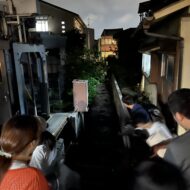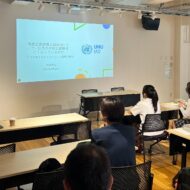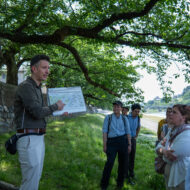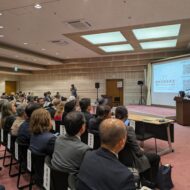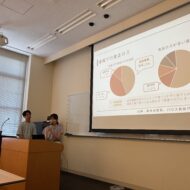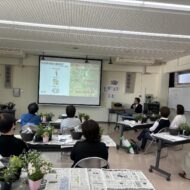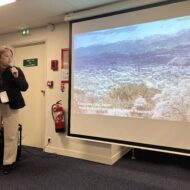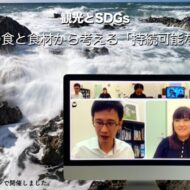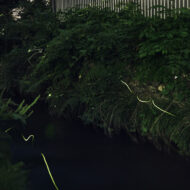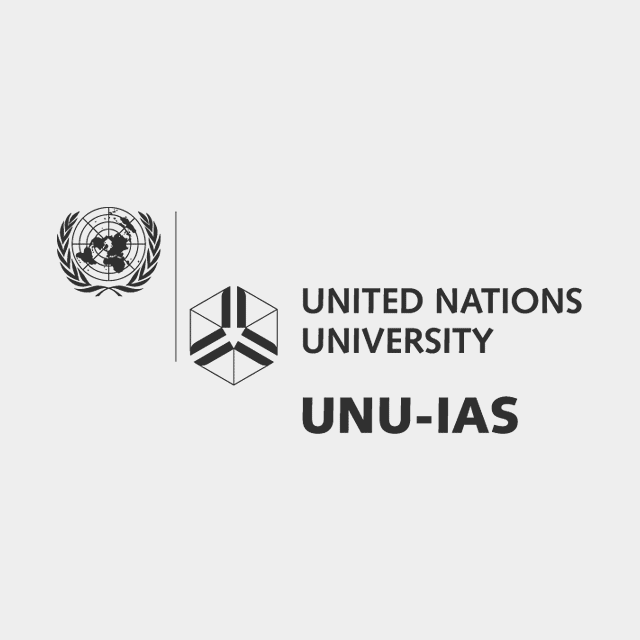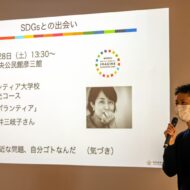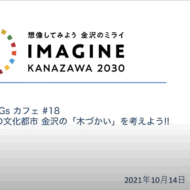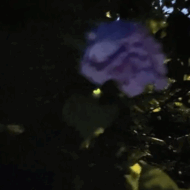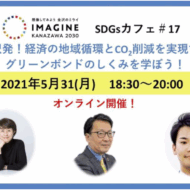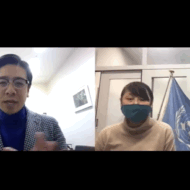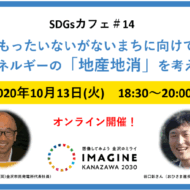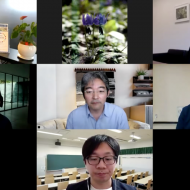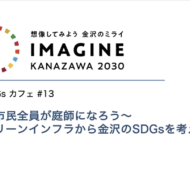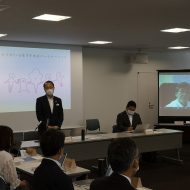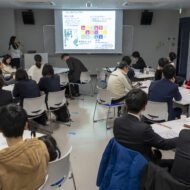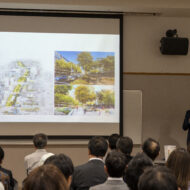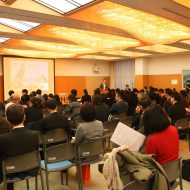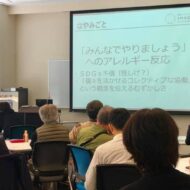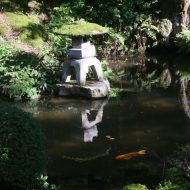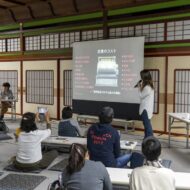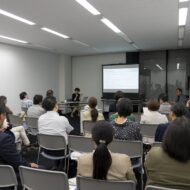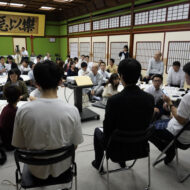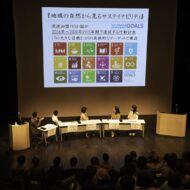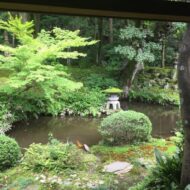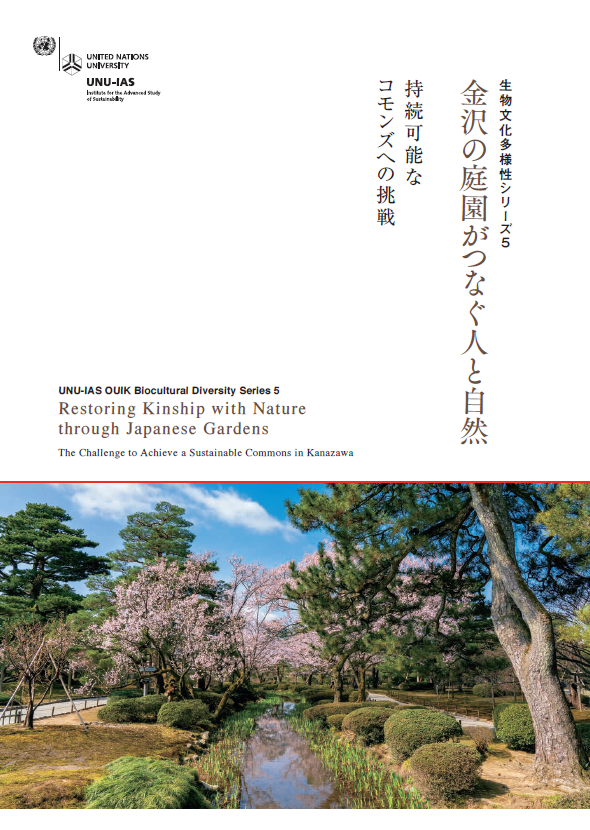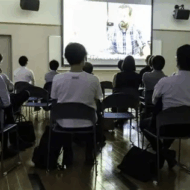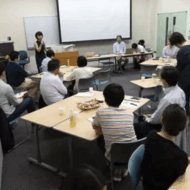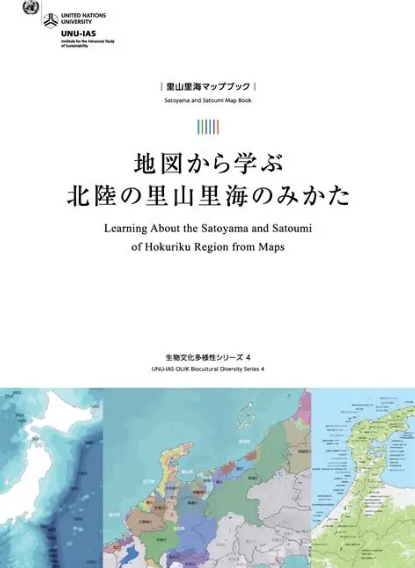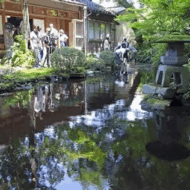Kanazawa
A biocultural region and a creative city: A sustainable city model
OUIK has collected information about the versatile urban functions of Kanazawa City, and disseminated the information through seminars and symposia. We organized the “City and Biological Diversity” research group, which focuses on the relationship between urban cultural elements such as architecture, food and handicrafts, and ecosystem services (natural blessings), and have carried out joint studies with people related to these elements.
OUIK is now proposing the idea of “biocultural region”
This idea grew out of our awareness of the need to consider the sustainability of both nature and culture. The values of Kanazawa City rely on the relationships between the nature that supports the culture and the culture that preserves the nature. Also, the city’s central area is supported by the nature and culture of peripheral areas including the Noto, Kaga and Hakusan regions, while the peripheral areas are influenced by the central area.
Kanazawa City is located closed to the sea and mountains. The city was developed according to the local geography, and crafts made of natural materials and a food culture based on abundant ingredients were promoted. Thus, the coexistence of urban culture and nature has been preserved. OUIK is identifying the values of the city and disseminating information about it as a sustainable city model to the rest of the world, where more than half of the population live in big cities.
UNESCO Creative Cities Network Meeting Kanazawa was held in May 2015. It was the first such meeting held in Japan. At the same time, OUIK held the international conference “The Ishikawa-Kanazawa Biocultural Region – A model for linkages between biological diversity and cultural prosperity” (May 28, 2015), and proposed the idea of biocultural regions.
We have disseminated the idea through collaboration with Kanazawa City, and the idea also contributed to the formulation of city policies. The preservation of biological and cultural diversities was adopted as a fundamental principle as part of the city’s biological diversity strategy (March 2016).
In 2015, OUIK Director Watanabe was appointed chairperson of the regional strategy formulation committee. We held a workshop to study Kanazawa’s nature and culture from an international perspective in collaboration with Kanazawa University International Student Center and Kanazawa City. We also held a joint workshop on food culture with producers of fermented food and traditional sweets. Through these workshops, we provided useful information for the formulation of the strategy.
In the future, OUIK will support key projects related to the biocultural diversity of Kanazawa City, with the aim of producing fruitful results from the regional strategy. In addition, we will disseminate information about the activities through the international network of UNESCO Creative Cities, and aim to contribute to the development of sustainable cities in the world.
News新着情報
Firefly Survey in the Kikugawa Area – Reaffirming the Richness of Nature Remaining in the City
On June 27, 2025, the United Nations University Institute for the Advanced Study of Sustainability (UNU-IAS OUIK) conducted a citizen-participatory fi ...Read more
First Session of the Youth Empowerment Program Held: Learning about Global Challenges in Kanazawa
Learning the Global and Local Dimensions of SDGs, Climate Change, and Biodiversity On June 25, 2025, the first lecture session of the "Leadership Dev ...Read more
On-site Excursion Held as Part of the Urban Ecosystem Restoration International Symposium
On May 21, 2025, as part of the International Symposium on Urban Ecosystem Restoration, an on-site excursion exploring the natural and cultural resour ...Read more
Event Report – International Symposium on Urban Ecosystem Regeneration “Nature, Culture, and Community: Rethinking Urban Connections from Kanazawa”
On May 22, 2025, the International Symposium “Nature, Culture, and Community: Rethinking Urban Connections from Kanazawa” took place at the Kanazawa B ...Read more
Event Report – Lecture on the cultural and biodiversity values of Nishi Family Garden
In Kanazawa City, many historical heritage sites, such as buildings, irrigation canals, gardens, and sacred forests, reflect a deep connection between ...Read more
Event Report – Final Presentation Session of the “Leadership Development Program for the Next Generation: Changing the World from Kanazawa, Ishikawa 2024” (Youth Empowerment Program)
The final presentation session for the which was newly launched by OUIK this fiscal year, took place on September 16, 2024. The aim of this program is ...Read more
SUN Project: Participatory Action Research (PAR) Kick off in Kikugawa area
May 14, 2024 OUIK's Researcher, Dr Juan, has initiated Participatory Action Research (PAR) as part of the Sustainable Urban Nature Project in the Kik ...Read more
Kick-off Event for Model-Cities on the Urban Ecosystem Restoration Project (UNEP)
Kanazawa City has been recognized this year as a model city for urban ecosystem restoration in the "Generation Restoration Project," which is part of ...Read more
Tourism and the SDGs – Considering “Sustainable Development” through Local Food and Ingredients
One of the key purposes of travel is "food." Ishikawa Prefecture is home to an abundance of ingredients nurtured by its rich natural resources from b ...Read more
Firefly Survey in Kikugawa
2022/7/1 On Friday, July 1, the United Nations University Institute for Advanced Studies (UNU-IAS) collaborated with the Kikugawa Community Center to ...Read more


